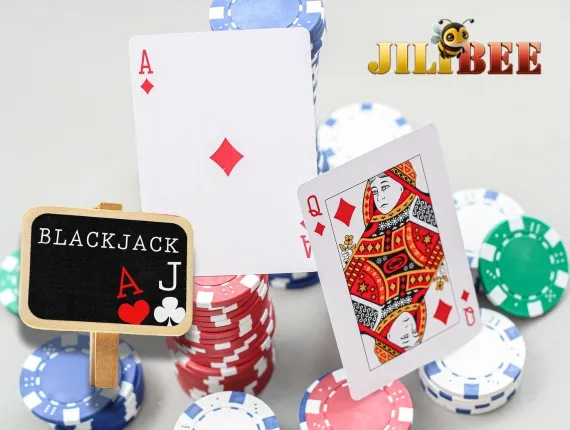
When to Hit or Stand in Blackjack

Dubbed the quintessential card game, blackjack captivates players in casinos worldwide due to its strategic depth, where every choice could tip the scale in your favor or against it. This comprehensive guide endeavors to arm you with savvy strategies to bolster your blackjack acumen. JILIBEE Casino .
Basics of BlackjackThe primary aim in blackjack is to surpass the dealer’s hand total without breaching the 21 mark. Scoring exactly 21 is a triumph, often achieved with an Ace paired with a 10-point card or a combination of others. Exceeding 21, however, results in a bust. Cards valued from 2 to 10 keep their numerical worth, face cards are valued at 10, and the Ace offers flexibility as either 1 or 11.
Players get the ball rolling by placing a bet and drawing two cards initially. From there, options include Standing to stick with your hand, Splitting if you receive a pair, Doubling Down to leverage your wager, or Hitting to draw more cards. These choices are a staple in traditional and online live dealer blackjack. To sharpen your skills, a strategy chart or a handy guide could be your ally.
When to Hit in Blackjack?Deciding whether or not to take another card in blackjack is pivotal. For instance, consider Hitting in these scenarios:
- With a total between 5 and 8, the risk of busting is minimal, and the abundance of high-value cards could elevate your hand.
- An 11 total against the dealer’s Ace calls for a Hit.
- Holding a 10 while the dealer shows a 10 or Ace could make Hitting worthwhile.
- If your hand totals 9 and the dealer’s upcard ranges from 2 to an Ace, drawing an extra card might boost your prospects.
Opting to keep your hand intact by standing can often be a wise choice, especially when holding a robust total like 17, 18, 19, or 20, offering substantial winning potential.
A fundamental aspect is recognizing soft versus hard hands in blackjack. Soft hands contain an Ace valued flexibly as 1 or 11, while hard hands do not, or must count the Ace as 1. Situations warranting a Stand include:
- Stand firm on a hard 16 if the dealer's card is between 2 and 6.
- Refrain from standing with a soft 16 when faced with a dealer’s 2 upcard.
- Commit to your hand if holding a 12 against a 4, 5, or 6 from the dealer.
Doubling Down is a maneuver whereby you increase your bet for a single additional card. This tactic shines with a total of 10 or 11, poised for likely escalations to 20 or 21.
Splitting lets you form two hands when dealt identical pairs. It’s especially advantageous with Aces and 8s, maximizing your winning potential. However, stay away from splitting 10s, which are already formidable, and avoid splitting 4s or lower pairs as they offer limited benefit.
Avoidable Missteps in Blackjack StrategyWhile some try different betting tactics hoping to tip the odds, no strategy can completely negate the house advantage. Knowing your specific game variation is vital. Common oversights include:
- Trying card counting, ineffective in digital and RNG-review games.
- Opting to Hit on a soft 17 when Standing might secure a better outcome.
- Choosing to Stand with a weak hand against a dealer’s mighty upcard, decreasing winning probabilities.
JILIBEE Casino Elevate your gaming adventure with JILIBEE's myriad of promotions tailored for both rookies and regulars. Dive into the Weekly Raffle for prize-packed opportunities or join exclusive contests for a piece of the jackpot.
Faithful patrons can unlock additional perks within the JILIBEE VIP Club featuring progressive loyalty stages. Benefits range from cashback options, reload bonuses, to customized guidance from a personal account overseer. Meanwhile, responsible gaming ensure mindful play stays at the forefront, with JILIBEE offering tips to uphold good habits. Dive into the VIP FAQ, or reach out via live chat for any queries.